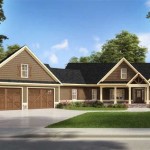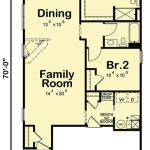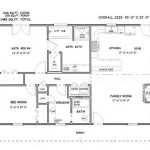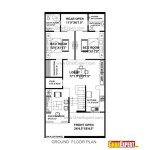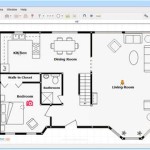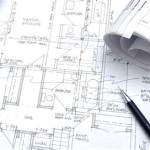Building Plans For Residential Houses
Building plans are essential for constructing any residential house. They provide a detailed outline of the house's design, materials, and construction methods. Having a well-designed building plan is crucial for ensuring the safety, functionality, and aesthetic appeal of your future home.
Types of House Plans
There are various types of house plans available, each catering to different needs and preferences:
- Custom House Plans: These plans are designed specifically for an individual client's requirements. They offer maximum flexibility and customization options.
- Stock House Plans: These pre-designed plans are available in a wide range of styles and sizes. They are less expensive than custom plans but may not meet specific requirements.
- Modified Stock House Plans: These plans are based on stock plans but can be modified to suit individual needs. They allow for some customization while keeping costs lower than custom plans.
Information Included in House Plans
Building plans typically include the following information:
- Site plan showing the house's location on the property
- Floor plans for each level of the house
- Elevations showing the exterior walls of the house
- Sections illustrating the house's structure and materials
- Details of finishes, fixtures, and appliances
- Engineering specifications for structural, mechanical, electrical, and plumbing systems
Importance of Building Plans
Building plans serve several crucial purposes:
- Construction Guidance: Plans provide detailed instructions for builders to follow during construction, ensuring accuracy and compliance with building codes.
- Cost Estimation: Plans allow for accurate cost estimation by providing precise information on materials and construction methods.
- Permit Approval: Plans must be submitted to local authorities for building permits, ensuring that the house meets safety and zoning regulations.
- Future Renovations: Plans serve as a valuable reference for future renovations or expansions.
Choosing a Building Plan
When selecting a building plan, consider the following factors:
- Your Needs and Preferences: Determine the size, style, and features that best suit your lifestyle.
- Budget: Consider the costs of construction and materials based on the plan you choose.
- Building Site: Ensure the plan is compatible with the size and shape of your building site.
- Local Regulations: Check local building codes and zoning restrictions that may affect the design of the house.
Conclusion
Building plans are essential for building a safe, functional, and beautiful residential house. By carefully selecting a plan that meets your needs and preferences, you can ensure a successful construction process and a home that you and your family will enjoy for years to come.

House Plans Home Residential

Design Your Own House Floor Plans Roomsketcher

6 Y Residential Building Plans And Section Two Bedrooms Per Unit

Design Your Own House Floor Plans Roomsketcher

Diffe Types Of Residential Building Plans And Designs

Design Your Own House Floor Plans Roomsketcher

Free Residential Home Floor Plans Evstudio

Half Of The Symmetrical Floor Plan Residential Building Scientific Diagram

Diffe Types Of Residential Building Plans And Designs

Diffe Types Of Residential Building Plans And Designs

